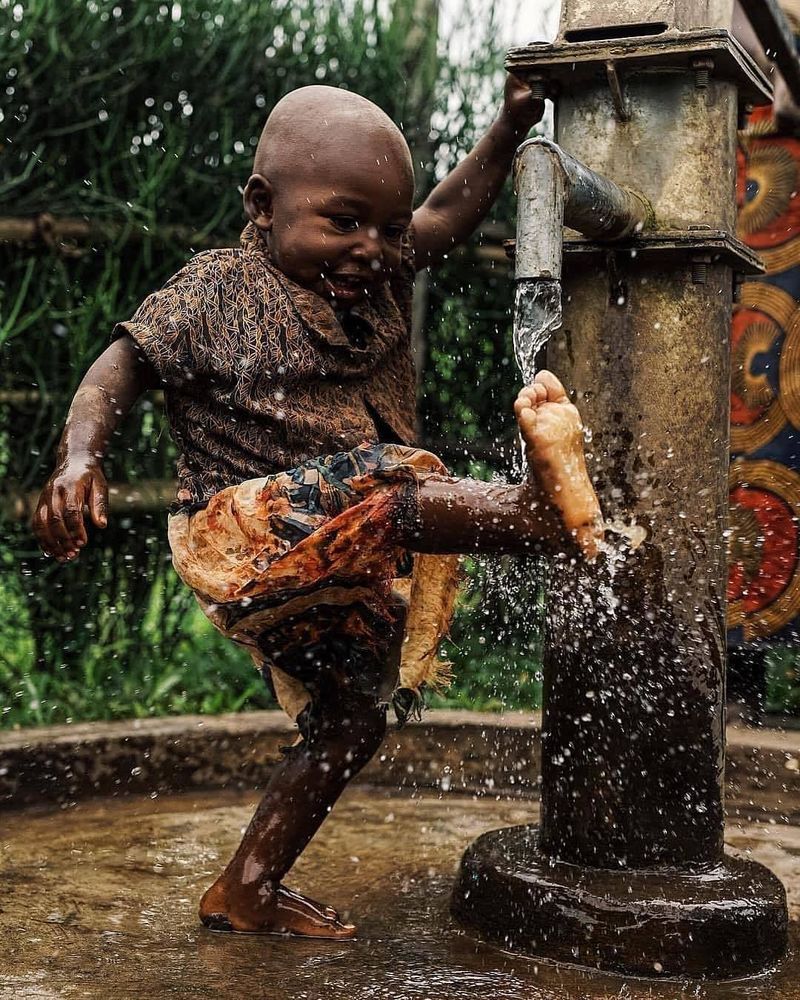Foster Connections
Make your child feel connected and you will be sure their well being is promoted by your emotional connection. Never forget other family members, friends, neighbors, daycare providers, even pets. Connecting your child to their world will fill them with happiness – a feeling of being loved, understood, wanted, acknowledged — emerged as by far the biggest protector against emotional distress, suicidal thoughts, and risky behaviors including smoking, drinking, and using drugs.
The primary and most crucial connection to a child is us, the parents. Show them the love that never fails and one that is unconditional. They must feel it; hold them as show empathy when they cry, read to them, eat, snuggle and laugh together. More than this allow him/her to form loving connections with others. This is of incredible importance to their happiness.
Don’t Try to Make Your Child Happy
Never put your child in a bubble of happiness. Allow them to experience life. Their long-term growth depends on it. They must live in a real world where things do happen in a certain way. You need to recognize that you are not responsible for controlling their emotions. Happiness in the short term does not teach them to learn from experience and so it would be wise to allow them to recognize particular situations and feelings; anger, sadness and even frustration.
Dealing with these emotions is pivotal to their lives as adolescents and adults. “Fixing” their feelings will never work. Take a step back and let them develop coping mechanisms that will make them resilient, bouncing back from life’s inevitable frustrations.

Nurture Your Happiness
Take responsibility for your own happiness. You can control your reactions. Children absorb this energy and so your mood matters. Be a happy parent where best you can and avoid your child falling into depression. Make time to rest, relax, and even more importantly keep the romance alive in your own relationship. Maintaining a good, committed relationship will reflect well on your child whose happiness will naturally follow your own.
Praise the Right Stuff
Self-esteem and happiness are often scientifically connected. We intuitively know this and as a result of some of us overly praise our child. Achievement praise can backfire. Sure, your child may score a goal but this does not mean he is the next David Beckham.
Falling off from this very high pedestal can undermine their future confidence. Intelligence, prettiness, athleticism all fall under this category too. Being valued for something out of one’s control can potentially be fleeting. Lesson; do not hold back from praise but rather praise the result of their hard work for example, that goes into achieving the end result.
Overall you should foster a growth mentality in your child that through hard work and practice, more than talent, one can achieve endless possibilities. It is possible to do this by allowing a child to achieve by saying one simple line of praise: you did well on X; you must have worked really hard. That puts into perspective something that the child can control!
Allow for Success and Failure
Focus less on compliments and more on providing him/her with boundless chances to take on board new skills. Mastery, not praise, is the real self-esteem builder. Fortunately, children under four years old can master almost everything given the chance — because all is new to them crawling, walking, feeding and even riding a tricycle. The challenge, stand back and let them discover what they are capable of on their own.
All be it difficult to watch your own child struggle, they will never know the thrill of mastery unless we allow them to risk failure. Very few skills are perfected on a first try. It’s through practice that children achieve mastery. Repeated experiences of mastery mean they develop the can-do attitude that allows them to approach their future challenges with a zest and optimism that is central to a happy life.

Give Real Responsibilities
“Happiness depends largely on the feeling that what we do matters and is valued by others,”
“Without that feeling, we fear we might be excluded from the group. And research shows that what human beings fear more than anything is exclusion.”
People have an innate need to be needed. Acknowledging to your child that he/she is making a unique contribution to the family, from an early age, the greater his/her sense of self-worth and ultimate happiness. Children as young as three performing simple tasks in the home can teach them this.
Where possible set tasks or assign roles that play to your child’s strengths. If they are good at sorting or nurturing give them tasks that match their skills. Acknowledge that he/she is making a contribution to the family, it will heighten your child’s sense of connection and confidence, two prerequisites for lasting happiness.
Practice Habitual Gratitude
Lastly, happiness studies repeatedly link feelings of gratitude to emotional well-being. Research at the University of California, Davis, and elsewhere has shown that people who keep daily or weekly gratitude journals feel more optimistic, make more progress toward goals, and feel better about their lives overall. For a child, keeping a journal may be unrealistic. However, one way to foster gratitude in children is to ask that each member of the family take time daily — before or during a meal, for example — to name aloud something he or she is thankful for. What is important is the regular ritual in habit forming to keep emotions positive. This assures lasting happiness.
